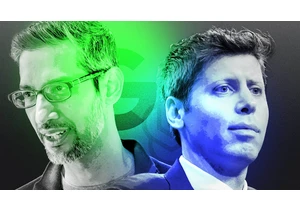YouTube is making millions of dollars a year from advertising on channels that make false claims about climate change because content creators are using new tactics that evade the social media platform’s policies to combat misinformation, according to a report published on Tuesday.
The Center for Countering Digital Hate (CCDH) used artificial intelligence to review transcripts from 12,058 videos from the past six years on 96 of Alphabet’s YouTube channels. The channels promoted content that undermines the scientific consensus on climate change that human behavior is contributing to long-term shifts in temperature and weather patterns, the report said.
CCDH, a nonprofit that monitors online hate speech, said its analysis found that climate denial content has shifted away from false claims that global warming is not happening or that it is not caused by greenhouse gases produced from burning fossil fuels. Videos espousing such claims are explicitly banned from generating ad revenue on YouTube, according to Google’s policy.
Instead, the report found that, last year, 70% of climate denial content on the channels analyzed focused on attacking climate solutions as unworkable, portraying global warming as harmless or beneficial, or casting climate science and the environmental movement as unreliable. That’s up from 35% five years earlier.
“A new front has opened up in this battle,” Imran Ahmed, chief executive of CCDH, said on a call with reporters. “The people that we’ve been looking at, they’ve gone from saying climate change isn’t happening to now saying, ‘Hey, climate change is happening, but there is no hope. There are no solutions.'”
YouTube is making up to $13.4 million a year from ads on the channels that the report analyzed, CCDH said. The group said the AI model was crafted to be able to distinguish between reasonable skepticism and false information.
In a statement, YouTube did not comment directly on the report but defended its policies.”Debate or discussions of climate change topics, including around public policy or research, is allowed,” a YouTube spokesperson said. “However, when content crosses the line to climate change denial, we stop showing ads on those videos.”
CCDH called on YouTube to update its policy on climate denial content and said the analysis could assist the environmental movement to combat false claims about global warming more broadly.
Melden Sie sich an, um einen Kommentar hinzuzufügen
Andere Beiträge in dieser Gruppe

Tesla has scheduled an annual shareholders meeting for November, one day after the

TikTok is facing a

Welcome to AI Decoded, Fast Company’s weekly newsletter that breaks down the most important news in

The internet’s latest obsession: training and cheering on anthropomorphized anime horses as they race around a track.
First released in 2021 as a mobile game for iOS and Android, Uma


In recent years, people have welcomed AI into their lives with open arms: as personal

Cybersecurity and
